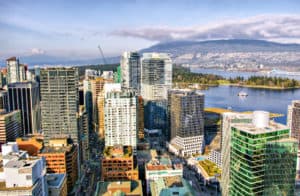New immigrants to Canada through the Parents and Grandparents Program have increased by more than double in the first quarter of 2022, compared with last year.
Official figures show that 5,235 new permanent residents arrived in Canada’s 10 provinces via the PGP between January and March, a 148 percent increase from the 2,110 arrivals in 2021.
The figure is also up on the 4,080 PGP newcomers recorded in the first quarter of 2020 before the COVID-19 crisis had taken a grip on Canada.
Extrapolated across the year, Canada’s provinces are on track to welcome nearly 21,000 PGP immigrants in 2022, up from 11,725 in 2021.

Immigration Levels Plan For Parents and Grandparents Program
Immigration, Refugees and Citizenship Canada (IRCC) will be hoping quarterly numbers pick up in the coming months, with a PGP intake target of 25,000 for 2022.
Canada’s annual immigration intake through the PGP is set to rise by more than a third in the next three years.
Ottawa’s latest Immigration Levels Plan targets 25,000 newcomers through the program in 2022, 28,500 in 2023 and a 2024 intake of 32,000.
That is a 36 percent increase on the 2021 target of 23,500 PGP newcomers.

Parents and Grandparents Program: Process
Immigration, Refugees and Citizenship Canada (IRCC) operates a lottery system for the PGP.
Citizens and permanent residents must submit an Interest to Sponsor form, before being placed in a pool.
IRCC makes random draws from the pool and issues Invitations to Apply.
The sponsors and their parents and grandparents then have 60 days to submit a full application.
IRCC officials have not opened a window for submitting the Interest to Sponsor form since 2020 and said earlier in 2022 that they were still processing existing PGP applications.
Read More
Eight Things To Know About Canada’s Parents And Grandparents Program
Canada’s Parents and Grandparents Program Intake To Grow By More Than A Third To 32,000
Parents and Grandparents Program: IRCC Says Still Processing Applications Already Received
Who Is Eligible To Sponsor Parents Or Grandparents?
Sponsors must:
- Be at least 18 years old.
- Live in Canada.
- Be a Canadian citizen, permanent resident, or a person registered in Canada as an Indian under the Canadian Indian Act.
- Have enough money to support those they want to sponsor by meeting minimum income requirements for the previous three years. Candidates can include a co-signer in their application, allowing the combined income to be considered.
Sponsors must also:
- Agree to financially support the parent or grandparent for 20 years from the date they are approved for permanent residence.
- Reimburse the government for any social assistance paid out to the parent or grandparent during that time.
Watch Video
Sponsors Who Live In Quebec
Sponsors who live in Quebec must meet the Quebec immigration sponsorship requirements after being approved as a sponsor by IRCC. The Ministry of Immigration, Francisation and Integration (MIFI) also assess the sponsor’s income and requires an undertaking to be signed.
Parents and Grandparents Program: Who Can Be Sponsored?
- Citizens and permanent residents can sponsor their own parents and grandparents, related by blood or adoption.
- In cases of divorce or separation, the spouses or common-law partners of parents and grandparents are also eligible.
- A sponsor’s brothers and sisters, or half brothers and sisters, are only eligible if they qualify as dependent children.
- More than one person or couple can be sponsors if the financial requirements are met.
Parents and Grandparents Super Visa
Those not successful in the PGP process should consider the Parents and Grandparents Super Visa, which allows a parent or grandparent to visit Canada for up to two years at a time. A super visa allows multiple entries for up to 10 years.





